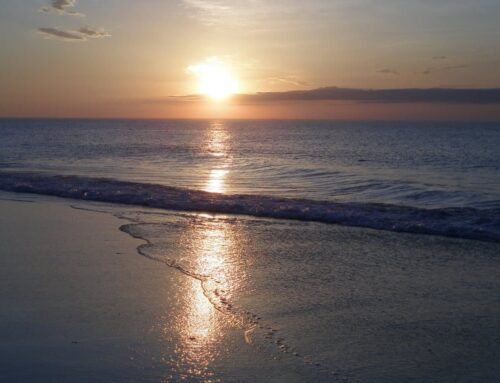0
Ruth McGoldrick, SP, a Sister of Providence from Holyoke, MA and also co-founder of the Women of Providence in Collaboration, has generously shared with me a presentation she did for their Associates. I intend to share that with all of you in parts or sections in this blog. So here is Part Three.
Living Providence Spirituality in a Contemplative Way
Con/templation literally means a way of being with or “in time.” It has to do with how one lives in the “Now”, in the present moment. It is the quality of presence that the Trinity brings to their life together, the same depth of presence that lovers bring to each other. They waste time “ gazing at” and delighting in one another and continually and creatively celebrating their love. No sacrifice is too great; no work too lowly. All energy is focused on and organized around who and what they love. This kind of presence is so full that it can no longer be contained in a closed circle; it is so tangible that it flows over and goes outward incorporating others into its communion, seeking out and including the most poor and isolated. We have, I hope, all of us experienced this kind of communion and presence in our families, among friends and in our ministries. When this kind of presence is sustained over a long period of time, it becomes our spirituality and we are experienced by others as being contemplatives-in-action.
Having come this far by faith, we are now being called to expand our consciousness and communion to include all other creatures as well. This demands more than efforts to conserve or love nature’s beauty; it will demand contemplative attitudes toward our resources, as well as the shedding of all subtle non-ecological habits we have acquired either through selfishness or greed, pure laziness, or even through ministerial efficiency.
It is through such a radical and interior simplicity of heart that our efforts can be sustained and seen as SIGNS OF HOPE that a New Creation Story is being written and lived. The Sisters vow poverty to attain an interior simplicity of heart. But all Christians are also called to the same interior simplicity in their own lifestyles.
Our Providence Spirituality reflects that of St. Vincent de Paul whose favorite virtue was Simplicity. Simplicity on all levels and in all systems – physical, psychological, and spiritual- is necessary to live an ecological and contemplative lifestyle as Providence People today.
On the physical level, we need to keep our own little eco-systems simple and clutter-free which requires lots of discipline. If we can’t do it alone, perhaps talking to a friend, therapist, or spiritual director will help. There is often a spiritual emptiness when people have to fill up their lives with superfluous objects. What we do not need belongs to the poor- a holy goal or suggestion.
The next level we can reflect upon is the psychological level which involves the letting go of unhealthy habits and addictions. There is a wide spectrum of additions or compulsions such as: shopping, TV, over- eating, drinking, drugs, gossip, gambling, work, unhealthy relationships, etc. Many are worthwhile pursuits until they rob us of our presence to ourselves, others, or to God. Once we recognize an excess in anything, it can alert us to stop, take note, and return to a healthier and holier lifestyle.
Finally, we want to be attentive to anything or anyone who threatens our spiritual life or the life of our Planet. Such things deprive other creatures of our full presence and rob us of the interior simplicity we need to fully experience God and life. The balanced keeping of our own and shared eco-systems has good corporate and global effects. Look at the harm done just by over -consumption and our throw-away society, the pain these inflict “on our common home.”
Sister Ruth challenges us in this section to expand our consciousness and communion beyond the presence of families and friends to include all other creatures as well. It demands us to conserve and love nature’s beauty.
Barbara McMullen, CDP
Related Stories



